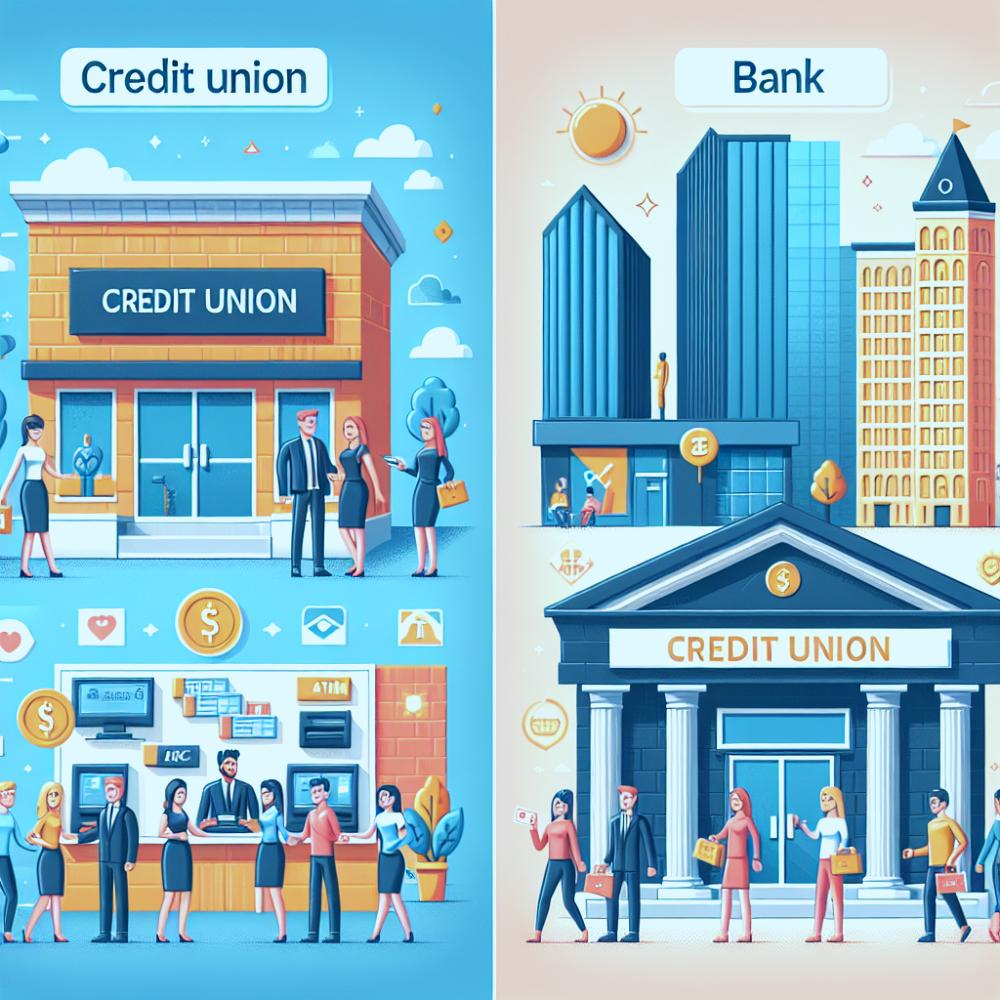
Introduction
In the financial world, the decision between banking with a traditional bank or a credit union can be a challenging one. Both banking entities offer a variety of financial products and services, including checking and savings accounts, loans, and credit cards. However, they operate on different business models which can significantly impact your banking experience. This article aims to dissect the differences between a credit union and a bank, highlighting their advantages and disadvantages, to help you determine which is best suited for your financial needs.
What is a Bank?
Banks are for-profit financial institutions owned by shareholders. They offer a wide range of financial services including savings and checking accounts, loans, credit cards, and investment products. Banks are typically larger than credit unions and have more branches and ATMs, both locally and internationally. This can be advantageous for customers who need to access their accounts frequently or travel often.
What is a Credit Union?
Credit unions are not-for-profit financial cooperatives owned and controlled by their members. The main goal of a credit union is to serve its members rather than to maximize profits. Credit unions also offer a range of financial services similar to banks, but they typically have fewer branches and ATMs. However, many credit unions are part of a shared branching network, which allows members to use services at other credit unions around the country.
Comparing Banks and Credit Unions
Customer Service
Credit unions are known for their exceptional customer service. Since they are member-owned, credit unions prioritize the needs of their members over profits. They typically offer personalized service and are more likely to work with members on issues like loan approval or overdraft fees.
On the other hand, banks can provide good customer service, but their primary loyalty is to their shareholders. This means they might not be as flexible or personalized in their service. However, larger banks typically offer more robust online and mobile banking features than credit unions.
Interest Rates and Fees
Credit unions generally offer higher interest rates on savings accounts and lower interest rates on loan products. This is because as non-profit entities, they aim to pass profits back to their members. Banks, being for-profit, typically offer lower interest rates on savings and higher rates on loans and credit cards. Additionally, banks often charge higher fees for services like account maintenance, ATM use, and overdrafts.
Accessibility
Banks usually have the upper hand when it comes to accessibility. They have more physical branches, ATMs, and often offer more advanced online and mobile banking platforms. Credit unions have fewer branches and ATMs, but they often participate in shared branching networks, which can significantly increase their reach.
Product Range
Both banks and credit unions offer a wide range of financial products, but banks typically have a broader range, especially when it comes to specialized financial products like business accounts, commercial loans, and wealth management services.
Conclusion
Choosing between a bank and a credit union largely depends on your personal financial needs and preferences. If you prioritize customer service, lower fees, and better interest rates, a credit union could be the best fit for you. However, if you prefer convenience, broader product offerings, and advanced digital banking features, a bank might be more suitable.
It's important to remember that not all banks and credit unions are the same. Before making a decision, research different institutions, check their rates and fees, assess their customer service, and consider how well their product offerings align with your financial needs. This will help you make an informed decision that will best serve your financial future.



















